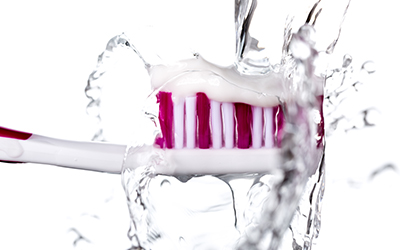Posted on Apr 28, 2025
File ID 76372706 | © Klaus Hoffmann | Dreamstime.com
 New Patient Forms
New Patient Forms 
Does your child struggle with brushing or feel anxious about dental care? For children with special needs, maintaining good oral hygiene can be challenging due to sensory sensitivities, motor difficulties, or behavioral concerns. However, with the right approach, you can make oral care a positive and stress-free experience.
Kids with special needs are more prone to dental issues like cavities, gum disease, and tooth sensitivity. Certain medications, diet restrictions, or difficulty in self-care can increase the risk of poor oral health. That’s why developing a consistent and adaptive oral hygiene routine is crucial.
Establishing a consistent and enjoyable oral care routine can make dental hygiene easier for children with special needs. Here are some tips to ensure stress-free oral care:
Selecting a suitable toothbrush and toothpaste can greatly impact a child’s oral care routine. Soft-bristled or electric toothbrushes are often easier to use, and silicone brushes work well for children with sensory sensitivities. Fluoride toothpaste with a mild flavor helps avoid discomfort from strong tastes.
Encouraging kids to enjoy brushing can lead to better participation. Turning it into a game, using a timer with music, or allowing them to pick their toothbrush can make the process enjoyable. Positive reinforcement, like stickers or verbal praise, helps build good habits.
Modifying brushing techniques ensures effective cleaning. Grip attachments or three-sided toothbrushes can help if holding a brush is difficult. Hand-over-hand guidance can develop brushing skills, and for resistant children, gradually introducing the toothbrush eases them into the routine.
Creating a consistent oral hygiene schedule makes brushing more manageable. Brushing at the same time daily builds familiarity, and breaking it into small steps can make it easier. Encouragement and patience help children feel more comfortable with oral care.
Routine dental checkups are crucial for maintaining oral health. Pediatric dentists specializing in special needs care can make visits smoother. Short, frequent appointments help children become familiar with the dental environment, and desensitization techniques can ease anxiety.
Oral hygiene doesn’t have to be a struggle. Start small, be consistent, and celebrate progress along the way!
At Ohmart Orthodontics, we are committed to providing compassionate, individualized orthodontic care for patients of all ages. Whether you're searching for different types of dental braces, an orthodontist closest to me, or seeking expert care in children’s orthodontics in Littleton, our team is here to help. With state-of-the-art technology and a patient-centered approach, we ensure the best possible results for every smile.
Take the first step toward a healthy, more confident smile—schedule your consultation with Ohmart Orthodontics today!